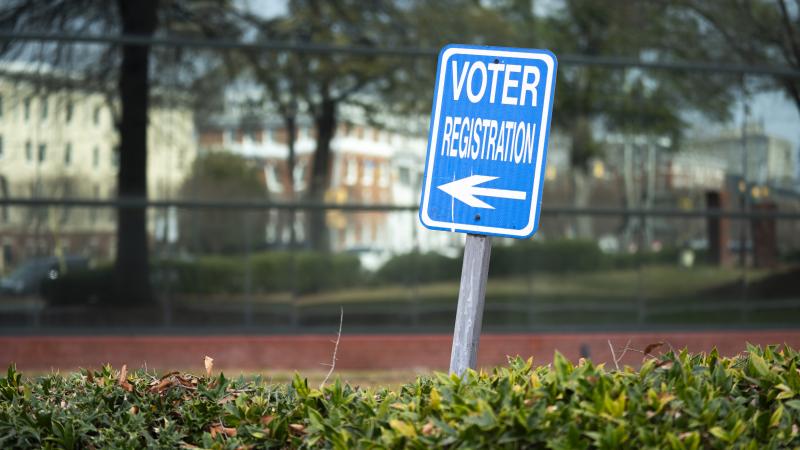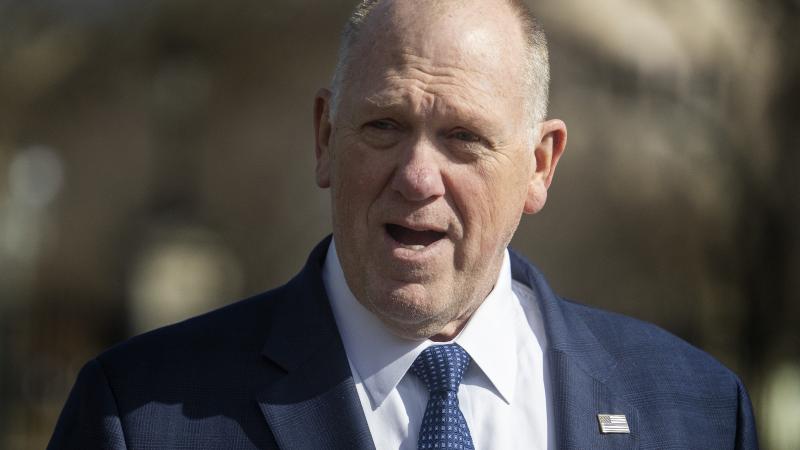Majority of Texas Hispanics support building border wall, sending troops to border
Hispanic voters and officials have shifted right over the years, with more officials leaving the Democratic Party to become Republicans.
A majority of Hispanic Texas voters support Gov. Greg Abbott building a border wall and constructing additional barriers along the Texas-Mexico border, according to a new poll.
Hispanic Republicans are also increasingly running for office and voting in larger margins this primary election than in 2022, according to new exit poll data.
The majority of Hispanic voters, 56%, support Texas building its own border wall and repairing walls or physical barriers at its border with Mexico, according to the University of Texas/Texas Politics Project poll. By comparison, 34% oppose it.
Another 42% of Hispanic voters support Texas installing buoys and barbed wire at the Rio Grande River to block illegal entry, compared to 49% who don’t.
Overall, 65% of all Texas voters said they support Texas building its own wall and barriers compared to 28% who oppose it. And 57% support Texas installing marine buoys in the Rio Grande River compared to 36% who don’t.
Two-thirds of respondents – 66% – said they support deploying additional state police and military resources to the border, compared to 27% who oppose it.
Among them, a majority of Hispanic voters, 51%, support it.
A majority of Hispanic voters, 56%, also disapprove of President Joe Biden’s handling of immigration and border security, compared to 26% who approve.
Texas is currently embroiled in three lawsuits over border barriers and buoys in Eagle Pass, Texas, with 25 Republican governors supporting Texas’ right to defend its border. Multiple states have also sued the Biden administration over a range of policies they argue violate laws established by Congress.
The top issues facing Texas voters are border security (24%), immigration (18%), political corruption (11%) and inflation (8%), according to the poll.
Hispanic voters and officials have shifted right over the years, with more officials leaving the Democratic Party to become Republicans. During the midterm elections, a poll identified three regions in Texas where Hispanic voters were leaning more Republican including in South Texas, the Rio Grande Valley, and outer suburbs of Texas’ four largest cities where minorities are disproportionately impacted by border and cartel related crime.
Part of the shift right can be attributed to the efforts of Project RedTX, which has been recruiting and supporting candidates at the local level since 2018. It was founded at a time when numerous Texas counties that historically voted Democrat were shifting right but few Republicans were elected locally or even filed to run for office. That changed after more Republicans ran for office and won in 2018 in historically Democratic districts.
By 2020, Hispanic Texans voted for Trump by the largest margin in state history for a Republican presidential candidate.
Also that year, Kleberg County residents made history. After decades of historically voting Democrat, they voted for former President Donald Trump by over 50%. In the 2024 primary election, many Republicans are running for office in the county and in multiple border counties, Project RedTX says.
In 2016, Democrat Hillary Clinton won 61% of the Hispanic Texas; in 2020, Joe Biden won 58% of their vote. In 2016, Trump won 34% of the Hispanic Texas vote, despite the Washington Post refuting exit poll data. In 2020, he won 41% of their vote, according to exit poll data published by the Washington Post.
“Republicans continue to make significant inroads in Texas border communities and other historically blue regions of the state,” Project Red Texas Director Wayne Hamilton said in a statement.
Freshman Republican Congresswoman Monica De La Cruz also points to primary voter data to show the trend is continuing. More people are voting in the Republican Party in her congressional district, which includes Hidalgo County, than before, she says. The border county is 92% Hispanic and has traditionally voted Democrat.
During early voting in the current primary election in Hidalgo County, she said, votes in the Republican primary increased by 50.7% from the 2020 primary election as Democratic votes decreased by 41%. Texas has an open primary.
“Numbers don't lie,” De La Cruz said, comparing Hidalgo County 2022 and 2024 primary election data. “Democratic numbers are still going backward,” she said, noting that Republican voter turnout increased by 24.6% from 2022 as Democrat voter turnout decreased by 14.4%.













